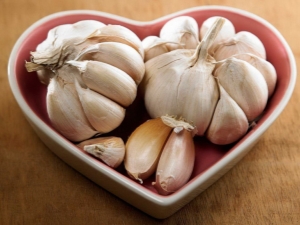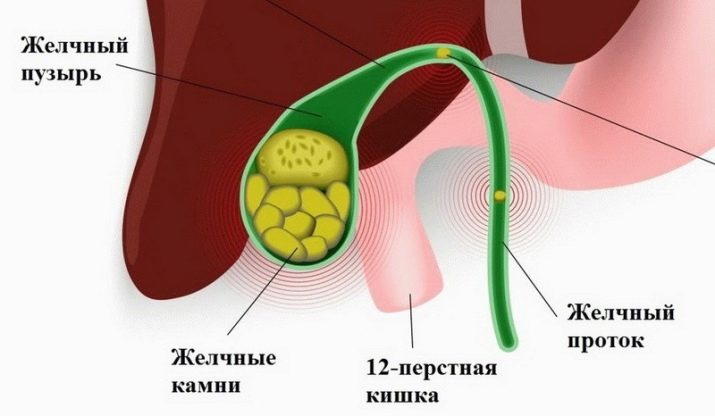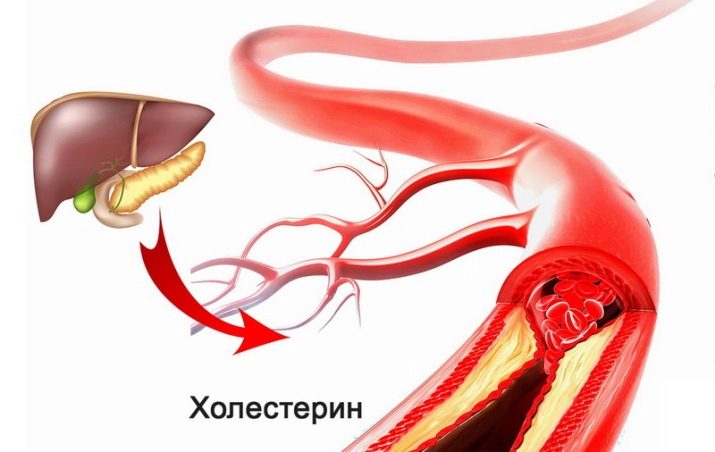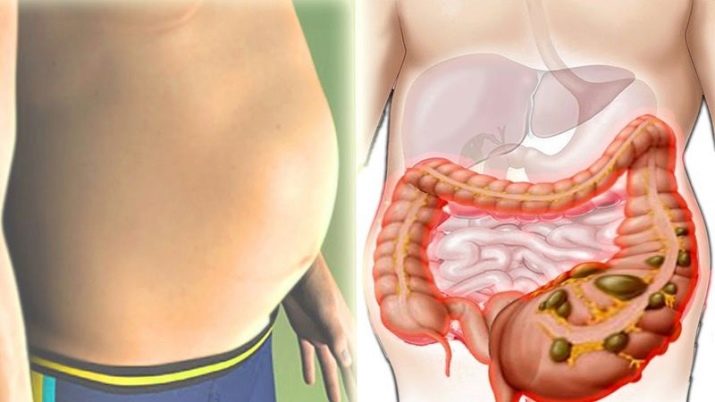Harm of garlic for health

Garlic is widely used in traditional medicine and cooking. However, not everyone knows that in some cases, garlic can hurt.This article will help to understand what harm this vegetable can cause to human health.
What is dangerous vegetable?
Garlic contains quite a few components that have a strong impact on the functioning of the human body. Many of them really improve the functioning of internal organs. Others may lead to the formation of pathologies accompanied by adverse symptoms. Garlic can be really harmful to the body, which should always be remembered by people who love to eat it.
The maximum amount of active substances found in fresh garlic. However, even in the old, long-stored vegetable stored components that can harm the body. Sprouted garlic also contains substances that adversely affect the functioning of the nervous, digestive and cardiovascular systems.
For liver and kidney
Since ancient times, people have used garlic to treat diseases of the liver and gallbladder, which are accompanied by bile stasis. It is believed that the substances contained in this fragrant vegetable, help to strengthen the secretion of bile, leading to improved digestion.
At first glance it may seem that such an action for the body is quite positive. However, this is not quite true. In a number of pathologies, an increased outflow of bile from the gallbladder can lead to the development of extremely dangerous complications. One of these pathologies is calculous cholecystitis. It is characterized by the presence of gallstones, which at any time can begin their movement along the bile duct in the process of secretion of bile.
Intensive release of bile secretion after eating garlic can contribute to the active movement of stones, which ultimately can lead to the overlap of the lumen of the bile duct. This condition is extremely dangerous, as it is fraught with the development of obstructive jaundice. Prolonged exposure of the stone to the bile duct can lead to inflammation, which contributes to the appearance of adverse symptoms.
In order to avoid the occurrence of such adverse clinical symptoms, people suffering from cholelithiasis or calculous cholecystitis should significantly limit their consumption of garlic. It is better that such a fragrant vegetable in such people be present in the diet no more than 2-3 times a week.
People who often eat garlic may experience dyspeptic symptoms. They have heartburn or a constant taste of bitterness in the mouth. The development of such symptoms should be alerted. When they appear, it is better to consult a doctor and undergo an ultrasound examination of the liver in order to exclude a number of pathologies.. It should also be sure to reduce the use of garlic.
The abundance of extractives found in garlic can also affect the functioning of the kidneys. People who suffer from diseases of the urinary system, include this vegetable in your diet should be very careful. If, against the use of garlic, pain in the lower back appeared and urination was disturbed, then you should refuse to take the vegetable, consult a doctor and undergo a full examination in order to exclude or confirm the effects of the toxic effects of garlic on the kidneys.
For heart
Garlic is widely used in traditional medicine for the preparation of various tools that contribute to the improvement of the cardiovascular system. Specialists in traditional medicine note that regular use of garlic normalizes cholesterol levels in the blood, which leads to a decrease in the risk of thrombosis. They note that people suffering from pathologies of the heart and blood vessels, with regular use of garlic feel much better.
However, there is a negative impact of garlic on the work of the cardiovascular system.So, tachycardia may develop in some people after eating garlic cloves. Substances that are contained in garlic can even trigger an attack of arrhythmia. The active ingredients contained in the vegetable, can affect the heart rhythm, which leads to the appearance of such disorders. It should be noted that people who have these pathologies to eat garlic should be extremely rare and in small quantities.
Precautions in the use of fragrant vegetables should be followed and people who, because of the presence of their diseases, are constantly forced to take medications that contribute to blood thinning. Such drugs are usually prescribed to people suffering from a high tendency to thrombosis or who are at high risk of developing pulmonary embolism.
Combined use of garlic and such drugs increases the risk of internal bleeding. That is why cardiologists strongly advise their patients, taking anticoagulants or thrombolytics, not to abuse with the use of garlic dishes.
Also in the garlic pulp are components that can affect blood pressure indicators. About this feature should be sure to remember people who have this indicator is significantly different from the norm. They should eat garlic infrequently, remembering the quantity. Do not eat garlic for people suffering from uncontrolled hypotension. The use of this vegetable with this pathology can provoke the appearance of adverse symptoms - dizziness, headache, and darkening of the eyes.
For the stomach and pancreas
Garlic contains many active ingredients that contribute to the strengthening of the digestive processes. The extractive substances contained in the aromatic vegetable affect the cells of the stomach, which leads to an increased production of gastric juice. The abundance of such a secret can lead to damage to the gastric mucosa, which ultimately leads to erosion or even ulcers.
Gastroenterologists note that people suffering from inflammatory abnormalities of the stomach should not include fresh garlic in their diet. It is extremely dangerous to eat fresh garlic during the exacerbation of gastritis. Such a departure from the therapeutic diet may be fraught with the development of a strong pain syndrome in the abdomen, which may even require urgent hospitalization in the hospital to eliminate it.
In inflammatory diseases of the pancreas, eating fresh garlic is also highly undesirable. The abundance of extractive components can provoke an increase in the work of this organ, which in the presence of pathology can lead to the appearance of extremely unfavorable symptoms. So, people suffering from chronic pancreatitis, after eating garlic may experience severe pain in the left half of the abdomen. The severity of painful attack is so intense that it can significantly worsen the state of health.
When exacerbation of chronic pancreatitis or in the acute form of the disease, it is strictly prohibited to use garlic. The use of this vegetable can provoke the development of a whole complex of complications, many of which are not only dangerous for health, but also for life.
For people suffering from chronic diseases of the pancreas, be sure to keep track of what spices they add to the dishes. So, it is possible to improve the taste of meat or fish by means of salt, bay leaf, dry parsley. Garlic, even in dried form, cannot be used as an aromatic additive in this pathology.
For other organs and systems
Damage from garlic juice can occur in various parts of the intestine. However, more often such pathologies after eating hot garlic cloves occur in the small intestine.People suffering from chronic enteritis and, consequently, forced to stick to a fairly strict diet, do not include fresh garlic in your diet. The use of garlic cloves can provoke the appearance of abdominal pain, severe gas formation and pronounced flatulence.
Extractives contained in garlic cloves can affect the functioning of the large intestine. It is no coincidence to use fresh garlic should not be people who suffer from hemorrhoids. The use of this vegetable can contribute to the emergence of complications of this disease, which will adversely affect the well-being.
Currently, scientific experiments are being conducted that are aimed at studying the effects of substances contained in garlic on the workings of the human brain. There is a scientific hypothesis that the active components contained in this vegetable may affect the speed of transmission of nerve impulses. Such an impact leads to a blunting of attention and a little distraction. Researchers who conducted such experiments also noted that after eating garlic, the ability to concentrate also decreases.
Some scientists even propose to limit the use of garlic for people of some specialties. In their opinion, garlic should not be included in dishes that are used during the working day by pilots, drivers, and representatives of other specialties where a strong concentration of attention is required. In order not to deprive the garlic lovers of the pleasure of eating their favorite garlic dishes, they recommend them to pamper themselves with them in the evening after work, or on weekends.
People whose work is not associated with a strong concentration can use garlic at any other time of the day at will.
The fact that garlic contains active ingredients that contribute to the revitalization of the nervous system, people have learned a long time ago. For example, after eating garlic cloves in a person suffering from epilepsy, a new attack may develop. In order to avoid this, neurologists recommend eliminating this aromatic vegetable from the diet for people suffering from epileptic disorder.
Could there be an allergy?
Garlic contains many allergens that can cause allergic symptoms. Such adverse events can occur in both an adult and a child. The most pronounced signs of allergy include:
- skin rash, usually red;
- itching of the skin;
- swelling of the lips, eyelids, lower half of the face;
- impaired breathing and swallowing;
- a sharp decrease in blood pressure;
- clouding of consciousness.
If such symptoms appear, then in that case you should not delay in seeking medical help. If you identify allergies in the future from the use of garlic should be abandoned.
Medical applications
Garlic contains a whole range of active ingredients, which is why it is widely used in traditional medicine. On its basis, you can prepare a variety of tools to help cope with cold symptoms. With garlic, you can cure a runny nose, cough, and also normalize disturbed breathing.
Used garlic and for the treatment of helminthiasis. These pathologies, unfortunately, are quite common. Milk with garlic juice has a negative impact on the vital activity of worms (worms), which helps cleanse the body of parasites.
This tool can be used not only for the treatment of helminthiasis, but also to prevent the development of this disease.
Tips on drinking
Use garlic should be properly. Even for medical purposes should not exceed the recommended dose of consumption of this vegetable. Garlic should be only fragrant supplement diet. To prevent the appearance of adverse health effects a day should not eat more than 3 garlic cloves.
For people who have chronic diseases of internal organs, before you include this fragrant vegetable on a regular basis in your diet, it is best to discuss this with a doctor. In some cases, garlic can be so unhealthy that its use is totally unacceptable. As a rule, this vegetable should not be included in its menu for people with chronic diseases of the digestive system.
For health benefits and dangers of garlic, see the following video.












































